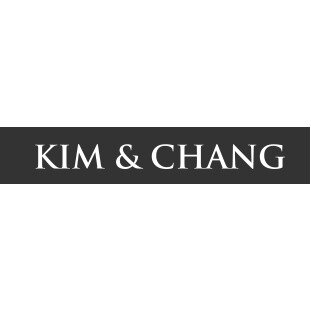Best Energy, Environment & ESG Lawyers in South Korea
Share your needs with us, get contacted by law firms.
Free. Takes 2 min.
Or refine your search by selecting a city:
List of the best lawyers in South Korea
About Energy, Environment & ESG Law in South Korea
Energy, Environment, and ESG (Environmental, Social, and Governance) law in South Korea is a dynamic and growing field that addresses the country’s efforts to balance economic development with environmental protection and sustainable business practices. South Korea has committed to achieving carbon neutrality by 2050, supported by various legislative and policy initiatives. The government is actively encouraging renewable energy development, strengthening environmental regulations, and promoting ESG principles among businesses. This legal landscape is shaped by both national law and international agreements, requiring companies and individuals to adhere to complex sets of rules and standards.
Why You May Need a Lawyer
Navigating Energy, Environment, and ESG matters often requires specialist legal assistance. Common situations where you may need a lawyer include:
- Applying for or renewing licenses and permits for energy projects, manufacturing, or waste management
- Ensuring compliance with emissions, waste disposal, and environmental protection regulations
- Handling disputes or investigations related to environmental contamination or accidents
- Evaluating or improving your company’s ESG compliance and reporting practices
- Participating in government incentive or subsidy programs for renewable energy
- Foreign investment or joint ventures involving energy or environment-related industries
- Mergers and acquisitions that require environmental due diligence
- Responding to new or proposed legislation affecting your business operations
- Litigation or administrative proceedings regarding breaches of environmental law
- Protecting intellectual property in renewable energy technologies
An experienced lawyer can help you understand your legal obligations, minimize risks, resolve disputes, and take advantage of available incentives.
Local Laws Overview
South Korea’s legal framework for Energy, Environment, and ESG consists of a range of acts, regulations, and policies influenced by global sustainability trends. Key aspects include:
- Renewable Energy Law: The Act on the Promotion of the Development, Use and Diffusion of New and Renewable Energy supports renewable energy industries and offers subsidies or tax incentives.
- Framework Act on Carbon Neutrality and Green Growth: Sets the legal foundation for South Korea’s carbon neutrality by 2050, mandating gradual emissions reduction and transitional support for relevant industries.
- Environmental Regulations: The Environmental Policy Act, Clean Air Conservation Act, and Water Quality and Ecosystem Conservation Act regulate pollution, set emissions standards, and control hazardous materials.
- Waste Management: The Waste Control Act governs the disposal, recycling, and treatment of industrial and household waste.
- ESG Disclosure: The Korean government has introduced reporting requirements for listed companies on ESG factors, with phased implementation schedules based on company size.
- Enforcement: Regulatory agencies such as the Ministry of Environment and the Ministry of Trade, Industry, and Energy oversee compliance and may impose penalties for violations.
- International Agreements: South Korea is party to major international treaties, including the Paris Agreement, influencing domestic policy and regulation.
Staying compliant with these local laws is crucial for companies, investors, and individuals involved in sectors affected by Energy, Environment, and ESG standards.
Frequently Asked Questions
What is ESG, and why is it important in South Korea?
ESG stands for Environmental, Social, and Governance. It refers to standards for a company’s behavior used by investors and regulators to evaluate risk, impact, and sustainability. ESG is increasingly important in South Korea due to new government policies, investor expectations, and public demand for responsible business practices.
Are there mandatory ESG reporting requirements in South Korea?
Yes, the Korean government is introducing phased mandatory ESG disclosure requirements for listed companies. The exact requirements and timelines vary based on company size and industry, with full implementation expected for large companies by 2030.
What are the main environmental laws affecting businesses in South Korea?
The Environmental Policy Act, Clean Air Conservation Act, Water Quality and Ecosystem Conservation Act, and Waste Control Act are among the key laws. They cover pollution prevention, emissions standards, waste management, and conservation of natural resources.
How does the government promote renewable energy?
South Korea promotes renewable energy through subsidies, tax incentives, feed-in tariffs, financing support, and Renewable Portfolio Standard obligations that require energy providers to generate a certain amount of energy from renewable sources.
What are the penalties for violating environmental regulations?
Penalties range from administrative fines and orders to suspend or halt business operations, to criminal prosecution or civil liability for damages. Penalties depend on the severity of violation and the potential environmental impact.
Does South Korea have a carbon trading or emissions trading scheme?
Yes, the Korea Emissions Trading Scheme (K-ETS) is in place for large emitters. It requires companies in certain industries to hold and trade permits for greenhouse gas emissions within government-allocated caps.
How does environmental due diligence work in mergers and acquisitions?
Environmental due diligence involves evaluating a target company’s compliance with environmental laws, past contamination, liabilities, and ongoing obligations to assess risks before completing a transaction.
Can individuals file lawsuits related to environmental issues?
Yes, individuals and civic groups may file lawsuits for administrative review or damages in cases of environmental harm. Legal standing and procedures are defined under Korean civil and administrative law.
What government bodies oversee Energy, Environment, and ESG matters?
The Ministry of Environment, Ministry of Trade, Industry and Energy, and the Korea Environmental Industry and Technology Institute are among the main regulatory and enforcement agencies.
How can a lawyer assist with ESG compliance?
A lawyer helps assess your company’s legal obligations, prepare ESG disclosures, audit compliance processes, respond to regulatory investigations, and design corporate governance policies that meet legal and investor expectations.
Additional Resources
- Ministry of Environment (MOE): Primary government agency for environmental policy and enforcement.
- Ministry of Trade, Industry and Energy (MOTIE): Oversees energy policy, including renewable energy incentives.
- Korea Environmental Industry and Technology Institute (KEITI): Provides technical support and guidance on environmental projects.
- Korea Exchange (KRX): Sets ESG reporting rules for listed companies.
- Korea Energy Agency: Promotes energy efficiency and renewable energy development.
- Local environmental law firms and legal aid centers: Offer direct legal advice and representation for individuals and companies.
Next Steps
If you need legal assistance with Energy, Environment, or ESG in South Korea, begin by identifying the specific issues you are facing and gathering any relevant documents or information. Seek recommendations for law firms or legal professionals with expertise in this field. Consider contacting governmental agencies for guidance or referrals. Arrange a consultation to discuss your legal needs, evaluate options for compliance or dispute resolution, and ensure you are up to date with the latest regulatory developments. Taking prompt legal advice can help you avoid penalties, seize new opportunities, and operate responsibly within South Korea’s evolving legal framework.
Lawzana helps you find the best lawyers and law firms in South Korea through a curated and pre-screened list of qualified legal professionals. Our platform offers rankings and detailed profiles of attorneys and law firms, allowing you to compare based on practice areas, including Energy, Environment & ESG, experience, and client feedback.
Each profile includes a description of the firm's areas of practice, client reviews, team members and partners, year of establishment, spoken languages, office locations, contact information, social media presence, and any published articles or resources. Most firms on our platform speak English and are experienced in both local and international legal matters.
Get a quote from top-rated law firms in South Korea — quickly, securely, and without unnecessary hassle.
Disclaimer:
The information provided on this page is for general informational purposes only and does not constitute legal advice. While we strive to ensure the accuracy and relevance of the content, legal information may change over time, and interpretations of the law can vary. You should always consult with a qualified legal professional for advice specific to your situation.
We disclaim all liability for actions taken or not taken based on the content of this page. If you believe any information is incorrect or outdated, please contact us, and we will review and update it where appropriate.
Browse energy, environment & esg law firms by service in South Korea
South Korea Attorneys in related practice areas.
Browse energy, environment & esg law firms by city in South Korea
Refine your search by selecting a city.
















